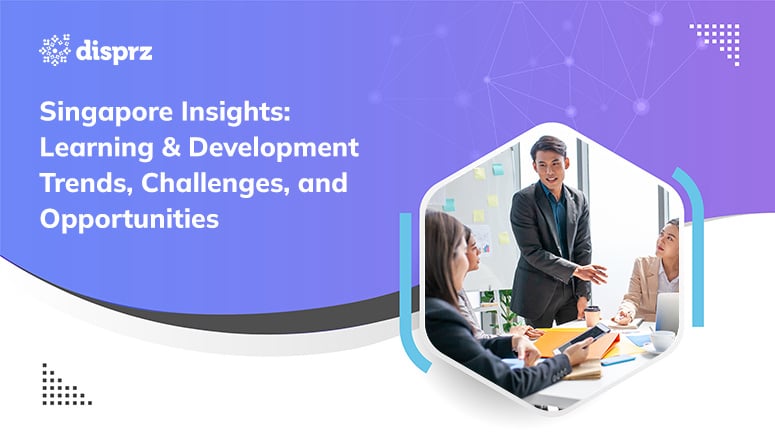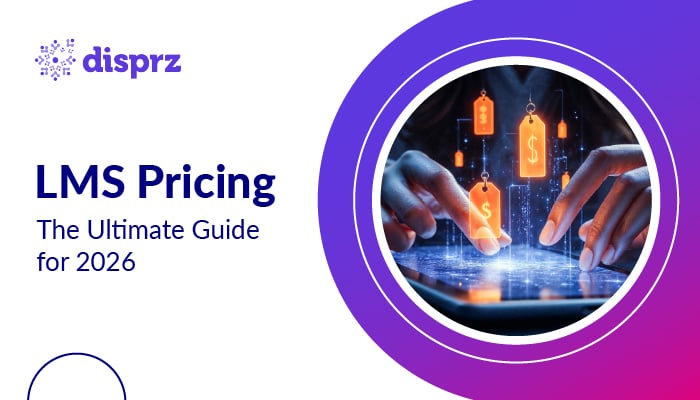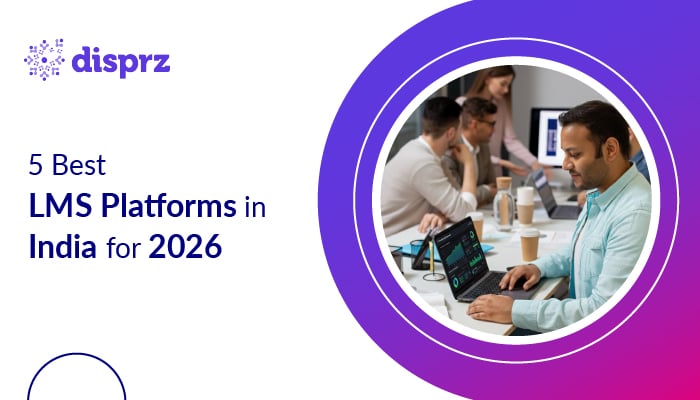In the dynamic city-state of Singapore, where tradition converges with cutting-edge innovation, the evolution of learning & development (L&D) is not a matter of possibility but of the pace at which it will advance. As Singapore accelerates its digital transformation, it is clear that traditional methods of upskilling and reskilling require a thorough reevaluation. With the eLearning market poised for substantial growth and AI skills becoming increasingly indispensable, Singapore’s L&D landscape is on the verge of a significant transformation.
It serves as a comprehensive guide to navigating this pivotal transformation. We will analyze the key trends shaping the future of L&D, address the challenges that organizations face, and offer actionable strategies to remain at the forefront of this evolving field.
Singapore's L&D Market Overview
Singapore, a leader in Southeast Asia's economic expansion, is witnessing significant transformations in its eLearning sector. The Singapore eLearning market, valued at US$792.97 million in 2019, is projected to soar to US$2,228.74 million by 2027. Driven by advancements in technology and government initiatives like the "Smart Nation" program, Singapore's commitment to lifelong learning is shaping its future. This commitment is reflected in the rapid growth of the eLearning market, driven by an increasing demand for digital learning solutions that align with the fast-paced changes in the work environment.
Key Trends Shaping L&D in Singapore
1) Workforce Priorities
Singaporean employees are increasingly focused on career development. According to the Randstad Workmonitor 2024 survey, nearly 40% of employees feel ambitious about their careers, and 68% are seeking more managerial responsibilities. This shift highlights a growing demand for L&D opportunities that align with career progression and organizational goals.
2) Rise in Upskilling
In Singapore, upskilling is becoming a crucial component of career growth. The Great Learning Survey 2023 revealed that 84% of professionals view upskilling as critical, with the potential to boost the region's GDP by 4% and create up to 676,000 new jobs by 2030. This emphasis on skill development is driving a new era of skills-first hiring, where talent acquisition and L&D professionals are working more closely to ensure that employees possess the skills needed for future success.
3) Demand for Digital Expertise
Digital transformation is redefining the landscape for organizations throughout Singapore. With 5.79 million internet users and an impressive internet penetration rate of 96.0 percent at the beginning of 2024, the region is set for significant expansion in its digital economy. To harness this potential, organizations must prioritize investments in digital skills and cultivate a culture of continuous learning and innovation. Digital transformation is reshaping organizations across Singapore.
4) Building an AI-Ready Workforce
Singapore is exceptionally well-positioned for AI adoption, as evidenced by its high ranking on the IMF’s AI Preparedness Index (AIPI). This index evaluates AI readiness through various factors, including digital infrastructure, human capital, labor market policies, innovation, economic integration, and regulation. Singapore’s strong performance across these metrics underscores its commitment to building a robust digital infrastructure and embracing advanced AI technologies.
Singaporean knowledge workers are increasingly harnessing AI to enhance their creativity in this environment. According to the 2024 Work Trend Index, 84% of these workers are already leveraging AI to boost their creative capabilities, often without waiting for a clear AI vision or roadmap from their organizations. This trend mirrors a broader global shift towards integrating AI into the workplace. To fully capitalize on this evolution, it is essential to develop an AI-ready workforce through a collaborative effort. This requires industry stakeholders, educational institutions, and policymakers to join forces in creating effective skilling programs and scaling AI training initiatives.
Key Skilling Initiatives in Singapore
-
Singapore has launched several initiatives to support workforce development.
-
SkillsFuture Singapore (SSG) aims to upskill workers and align their skills with industry demands.
-
Additionally, the Monetary Authority of Singapore (MAS) is investing S$400 million in skills training for finance professionals, highlighting a commitment to building a future-ready workforce.
L&D Challenges in Singapore
1))Job Insecurity and Need for Upskilling
Job insecurity is a significant concern, with 42% of male workers and 34% of female workers feeling uncertain about their job stability. This uncertainty emphasizes the need for continuous upskilling to remain competitive in the workforce. Organizations must focus on supporting employee development and fostering a positive workplace culture to enhance job satisfaction and retention.
2) High Cost of Training
The high cost of training poses a challenge for many organizations in Singapore. With 39% of organizations struggling with training expenses, innovative solutions are needed to balance costs with effective employee development. Strategic investments in cost-effective learning technologies and methodologies can help address this challenge.
Actionable Recommendations for L&D Leaders
Embrace Data Literacy and Analytics
Develop data literacy among L&D professionals to align learning programs with strategic business objectives effectively.
Build Relevant Metrics
Shift focus from vanity metrics to meaningful metrics aligned with business outcomes, such as productivity and performance.
Promote Continuous Learning
Reinforce a culture of continuous learning, emphasizing microlearning and personalized approaches to enhance problem-solving skills.
Facilitate Multi-Stakeholder Collaboration
Foster partnerships between industry leaders, educational institutions, and government bodies to drive large-scale upskilling initiatives.
Invest in Learning Technologies
Leverage AI-driven platforms, virtual reality (VR), and gamification to enhance learning engagement and effectiveness.
Measure ROI and Impact
Implement robust mechanisms to measure the ROI of L&D initiatives and use data analytics to optimize future investments.
Success Story: Mediacorp’s Transformation with Disprz
Mediacorp, Singapore's largest media network, faced challenges with its sales training. The company needed a digital-first solution to enhance productivity and efficiency. By adopting Disprz LMS, Mediacorp transitioned from outdated offline systems to an online platform that provided a centralized content repository, gamification tools, and robust analytics. This transition resulted in a 73% increase in learning hours and a 62% course completion rate, significantly boosting sales performance.
Conclusion
The L&D landscape in Singapore is evolving rapidly, driven by digital transformation and the growing need for advanced skills. Addressing the challenges of job insecurity, high training costs, and the need for customized training programs requires a transformative approach. By leveraging AI-powered learning platforms like Disprz, organizations can effectively bridge skill gaps, foster continuous learning, and stay ahead in the competitive market.
To get detailed insights on the L&D transformation in Singapore, access the comprehensive purple paper here.
To explore how Disprz can help your organization navigate these challenges and enhance your L&D strategies, schedule a demo today!










